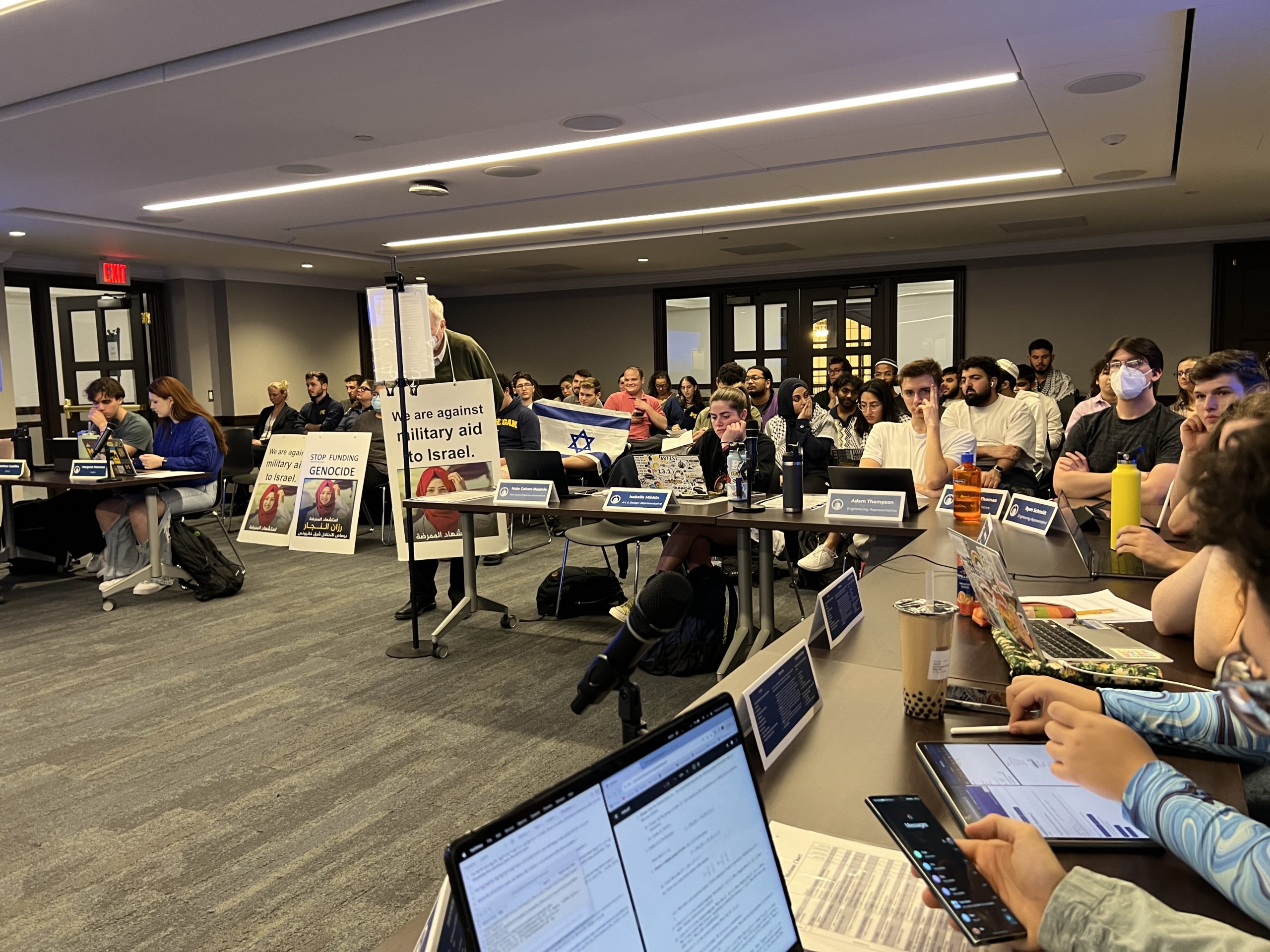On November 28–30, the student body will vote on a ballot question accusing Israel of genocide.
The Central Student Government (CSG) Assembly voted down that question, Assembly Resolution 13-025 (AR 13-025), when it was presented as a petition at the Assembly’s October 31 meeting, thus automatically submitting it to the student body for a vote. CSG voted 6 in favor to 21 against, with 3 abstentions.
CSG also rejected an opposing petition, Assembly Resolution 13-026 (AR 13-026), which criticized the terrorist organization Hamas. The vote on AR 13-026 was 5–23–2. The Assembly discussed both petitions in a closed-door session and voted by secret ballot to turn the decision over to the student body.
CSG Rep. Patrick Szendro-Arceo explained CSG’s reasoning to the Michigan Review:
This issue is beyond us as representatives. . . . This [issue] is more to be decided by the actual students than by the representatives, who do not have the degree of knowledge or certainty on what is best to decide, so we decided to leave it up to the students. Student Government will not take a stance on which group we prefer over the other.
Instead, CSG unanimously passed Assembly Resolution 13-024, which denounces “an ongoing climate of fear, as well as a culture of harassment and viewpoint discrimination” on campus due to the Hamas–Israel war.
AR 13-025 responds to University President Santa J. Ono’s October 10 statement decrying “the horrific attack by Hamas terrorists on Israeli citizens.” The ballot question states that “the University’s initial statement on this issue failed to mention the word ‘Palestine’ or ‘Gaza,’ causing entire student populations to feel unseen and otherized.”
AR 13-025 alludes to the university’s expanding “diversity, equity and inclusion” initiatives, requesting “that the University and its Regents act on its claims to foster diversity, equity, and inclusion for its students by not erasing the pain and existence of the Palestinian community at the university.”
The resolution further calls on U-M to “recognize the millions of people undergoing genocide in Gaza as we speak” and “loudly and clearly rewrit[e] historically colonist-centered narratives about war, genocide, terrorism, and apartheid.”
According to the U-M Student Constitution, “If a simple majority of voting students vote to approve the legislation, it is adopted.” If a ballot question is adopted, “the Assembly must not legislate contrary to valid vote [sic] of the student body until the seating of a new Assembly,” which will happen after the March 2024 election.
AR 13-025 is only the latest instance of U-M community members’ accusing Israel of genocide. More than one thousand U-M professors and graduate students signed a statement in October alleging that there is a “campaign of destruction being undertaken by the Israeli military against the entire civilian population in Gaza.”
At least 27 U-M sociology professors and graduate students signed another letter arguing that “the majority of people in Gaza are long-term refugees, and now again face genocide and ethnic cleansing.”
The letter further suggests that Israel is committing a second Holocaust, accusing the European Union of “failing to reflect on the historical irony to ‘never again’ commit genocide.”
CSG also has a long history of anti-Israel advocacy. After rejecting resolutions that supported the boycott, divestment, and sanctions movement in 2014 and 2015, the Assembly adopted one in 2017.
Voter turnout has been extremely low in recent fall elections. In the past two years, no fall ballot question has received more than 1,616 votes. But given massive campus demonstrations on this issue and the fact that each petition already had to receive at least one thousand signatures for CSG to consider it, AR 13-025 and AR 13-026 have the potential to motivate many students to vote.
